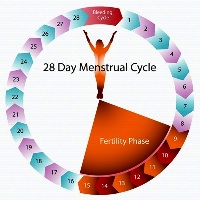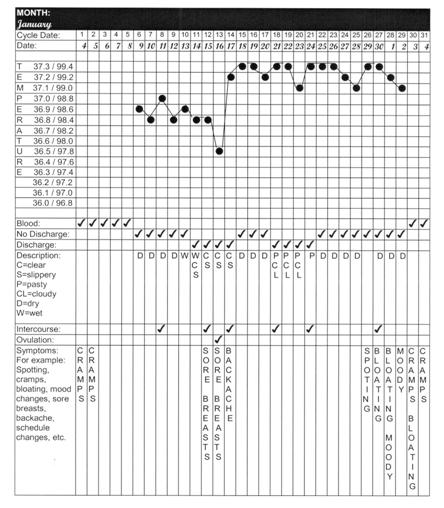Frequently Asked Questions
About Fertility
Waiting for a Miracle
"We finally made the ‘BIG’ decision! We want to become parents. I was so excited at first, but now I'm so disappointed. Each month, there it is again, my period. Will I ever get pregnant?"

This is a common concern. Try to keep the following points in mind.
● 85-90% of couples conceive within one year of trying.
● There is a 20% chance of pregnancy each month.
● Sperm can live in the female reproductive tract for about 3-5 days.
● The life span of the female egg is approximately 12-24 hours.
● A woman ovulates (releases an egg) about 14 days before her next period.
● Intercourse daily or on alternate days around the time of ovulation is best, meaning from about 7 days before ovulation until 2 or 3 days after.
● A woman's fertility decreases after age 30; it may, therefore, take longer to conceive.
If you are not pregnant after 12 months of frequent unprotected intercourse, contact us at (310) 530-5678 to schedule an appointment and take advantage of our free consultation and health evaluation. If you are 35 or older you may wish to seek advice sooner.

Keeping Track
Remember, you are most fertile in the days leading up to ovulation. This is the best time to try to become pregnant. To help predict when you are most likely to ovulate, keep track of your cycle. There are many ways to do this.
Calendar Charting
This method requires keeping track of your menstrual cycle for 6-8 months.
● The first day of your period is considered to be Day 1 of the cycle.
● The last day of the cycle is the day before your next period begins. This will help to predict the approximate time of ovulation, which occurs 14 days (plus or minus 2 days) before your period.
● This is most useful when used along with the other methods listed below.
Basal Body Temperature (BBT)
The basal body temperature is the lowest body temperature of a healthy person.
●Each day, upon awakening and before getting out of bed (after at least 3 hours of sleep), take your temperature with a special BBT thermometer.
●A drop in BBT sometimes occurs 12-24 hours before ovulation.
●A rise which lasts several days is almost always seen following ovulation.
●Do this for 3-4 cycles to see a pattern.
The BBT alone is not a good method to predict ovulation since temperature changes do not occur until the time of ovulation.
Cervical Mucus Charting
This method relies on recognizing the changes in the amount and consistency of your cervical mucus.
● A few days before ovulation, the amount of mucus increases, becomes clear, wet and slippery. It may look and feel much like raw egg white.
● When placed between two fingers it can be stretched 5 cm or more. This is what you are looking for.
● During the rest of your cycle, you will notice days when there is no discharge and times when you will have more cloudy, whitish or yellowish discharge that is thick and sticky.
● Certain things, such as douching, vaginal infection, medications, semen, contraceptive jelly or lubricants may interfere with the ability to detect these secretions.
Sympto-thermal Charting
This brings together the above methods. Charting the changes in your mucus and measuring your BBT will give you a more accurate picture of when you are most fertile.
Some women also experience and record other symptoms. These may include:
● increased sex drive
● breast tenderness
● mid-cycle bleeding or spotting
● ovulatory pain
Ovulatory pain can present itself as lower abdominal pain or discomfort, rectal pain, feelings of heaviness and abdominal swelling.
All the above may occur just before, during, or after ovulation.
When trying to monitor all of these factors together, you may have a chart that looks something like the one below. (This form can be found in our New Patients page).

Keep track of your cycle over the next 3 months and record what you discovered below.
1st cycle:
I started my period on: _______________________________________
I think I ovulated around: _______________________________________
2nd cycle:
I started my period on: _______________________________________
I think I ovulated around: _______________________________________
3rd cycle:
I started my period on: _______________________________________
I think I ovulated around: _______________________________________
4th cycle:
I started my period on: _______________________________________
I usually ovulate around day: _______________________of my cycle.
Tipping the Fertility Scales In Your Favor
"Can I increase my chances of getting pregnant? A friend of mine told me to keep my legs up in the air after intercourse. Does this really help?"
Lying on your back with hips raised on a pillow for about 20 minutes after intercourse probably will not hurt, but there is no conclusive research to suggest that it will actually help. The thought behind this position is that it may help the sperm to pool near the cervix and travel its course. In general however, healthy sperm in a healthy reproductive tract will reach their target within a few minutes.
There are many myths about increasing your chances of getting pregnant. Let’s leave those behind and focus on the important step of maintaining good health instead. The following chart will assist you and your partner to reflect upon your fertile health.
Check the statements that apply to you.
FERTILITY FAVORITES for MALES
1. I do not work in a hot environment (e.g. a smelting plant), wear tight jeans or briefs, or take long hot baths or use hot tubs.
2. I ejaculate at least once a month.
3. I am in a healthy BMI (body mass index) range.
4. I do not drink alcoholic drinks excessively.
5. I do not smoke.
6. I am aware of the chemicals I am exposed to at work and they are not a hazard to my fertility.
7. I have not had mumps.
8. I have not been exposed to radiation or chemotherapy.
9. I am not taking any medications that can affect my fertility. (If you are taking medication that you are unsure about, seek advice from your doctor or pharmacist).
10. I have not had any surgery or injury to my penis, scrotum, or prostate.
FERTILITY FAVORITES for FEMALES
1. I am within a healthy BMI (body mass index) range.
2. I am a non-smoker.
3. I limit my caffeine intake.
4. I do not have a sexually transmitted disease.
5. I am not taking any medication that may be harmful to my fertility or a developing fetus. (If you are taking medication that you are unsure about, seek advice from your doctor or pharmacist).
6. I have not been exposed to chemotherapy or radiation.
7. I have not had any pelvic or abdominal surgery.
8. I am younger than 35 years of age.
9. I do not douche after intercourse.
10. I have stopped using my chosen method of birth control.
If you and your partner have checked all of the above, you are on the right track! Many of these points have been discussed previously in this guide. If you have any questions or are unsure, call us at (310) 530-5678. Please keep in mind that this is only a guide to keeping your fertility healthy.
Stopping Birth Control
"For years I've been so concerned about making sure I don't get pregnant. Now that I want to get pregnant
I'm wondering if it is as easy as just stopping my present birth control method and letting nature take its course."
Find your method of birth control to find out how it impacts your efforts to conceive.
The Pill (Oral Contraceptive)
● Becoming pregnant while taking the pill does not seem to increase any risks to the fetus.
● Once you have stopped taking the pill, there may be a 2 to 3 month delay before your regular menstrual cycle resumes.
● Before trying to get pregnant, use another form of birth control until you had 1 to 2 normal menstrual cycles. This will help you to recognize when pregnancy has happened and will help to pin point your due date.
The I.U.D. (Intra-uterine device)
● An IUD may put you at greater risk of pelvic inflammatory disease, which in turn can affect your fertility.
● Have your IUD removed before becoming pregnant.
● If you become pregnant with the IUD in place, see your health care provider immediately for removal.
The Patch (EVRA)
● The patch is worn on the skin to prevent pregnancy. The hormones in the patch are absorbed into the body through the skin. The patch does not protect again sexually transmitted infections.
● Becoming pregnant while using the patch does not seem to increase any risks to the fetus.
● After stopping using the patch, you should use another birth control method until you have had at least one normal menstrual cycle in order to date the pregnancy.
Depo-Provera
● It may take 6-12 months for your fertility to return after you stop using it. The average time for fertility to return is 10 months from the last injection.
Norplant
● The implant's effectiveness drops after 5 years.
● Remove implants before trying to become pregnant.
● Your period should return to normal very quickly after your implants are removed.
My birth control method is
_____________________
I stopped using it on
_____________________

On a final note, keep in mind that becoming pregnant may take some time. Be patient with each other and keep talking about your concerns and hopes. If you feel you need more information, contact us at (310) 530-5678 to schedule an appointment and take advantage of our free consultation and health evaluation.
CONTACT US
YX Medical Group, Inc
4305 Torrance Blvd, Ste 306, Torrance, CA 90503
Tel: (310) 530-5678
Fax: (310) 370-1206
Keyword: infertility in Torrance, fertility in Torrance,